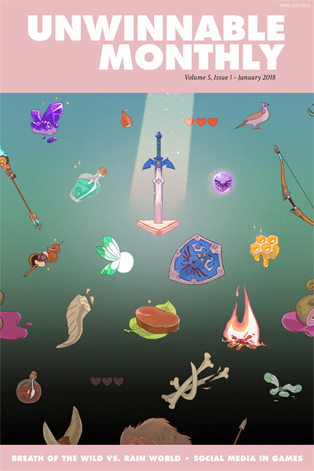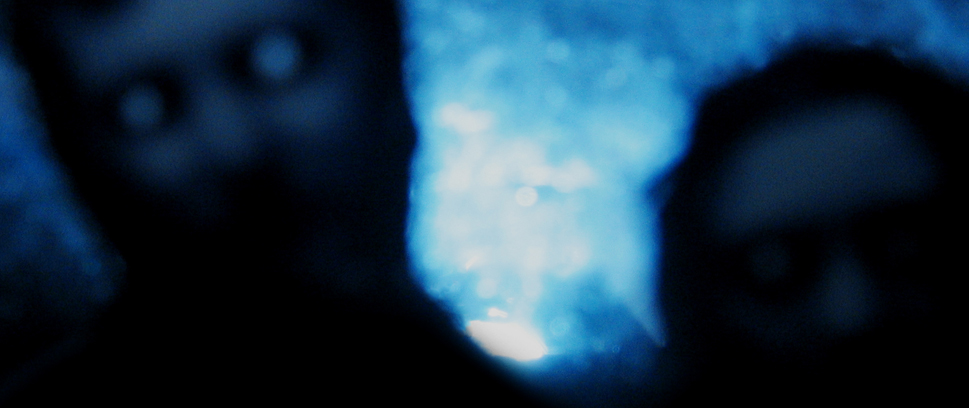
That Sugar Film
 This column is a reprint from Unwinnable Monthly #99. If you like what you see, grab the magazine for less than ten dollars, or subscribe and get all future magazines for half price.
This column is a reprint from Unwinnable Monthly #99. If you like what you see, grab the magazine for less than ten dollars, or subscribe and get all future magazines for half price.
———
Every week, Megan Condis and a group of friends get together for Documentary Sunday, a chance to dive into the weird, the wacky, the hilarious and the heartbreaking corners of our culture. This column chronicles all of the must-watch documentary films available for streaming.
———
If you’ve ever watched a documentary about food and health before then the format of That Sugar Film (Gameau, 2015) will be familiar. Average Joe Damon Gameau, an Australian filmmaker, conducts a dietary experiment on himself by consuming 40 teaspoons of sugar (which, he claims, is the average amount of sugar consumed by his fellow Australians) every day for sixty days. A team of doctors and a camera crew follow him, chronicling his rapid decline in order to convince the audience of the dangers of this ubiquitous food additive. The twist, if you can call it a twist, comes when, rather than getting his fix from sweet treats we know to be bad for the body like soda and candy, Gameau mainly consumes products that we typically consider to be “healthy alternatives” to junk food: granola bars, fruit juice, yogurt, etc.
At first glance, That Sugar Film seems like a fun, harmless exercise in preaching to the choir. It provides everything its vague title seems to promise, including reassurance that we in the audience are secure in our righteousness regarding our knowledge of nutrition. For example, we are invited to smugly shake our heads and waggle our fingers at the parents who give their babies Mountain Dew in their bottles and at the headless, obese stock footage figures used as anonymous cautionary tales: there but for the grace of Morgan Spurlock go I. The presentational style of the film is quite slick and enjoyable, from a Fantastic Voyage-style trip through the human body to a catchy music video performed by a pimp named Mr. Sugar. But the question remains: don’t we already know that sugar is bad for us? Even if some of the more bombastic claims (that overconsumption of sugar causes mood swings, aggressiveness, and even fatty liver disease) made in the film are questionable according to scientific research, are we really that surprised by its central conceit?
[pullquote]We are invited to smugly shake our heads and waggle our fingers at the parents who give their babies Mountain Dew in their bottles and at the headless, obese stock footage figures used as anonymous cautionary tales[/pullquote]
This line of inquiry leads to an even bigger question: why do we watch documentaries in the first place? Perhaps the answer lies in the definition of documentary film itself. John Grierson, the father of British documentary film, describes the format as “the creative treatment of actuality” while Soviet documentary director Dziga Vertov believed that his purpose was to capture “life caught unawares.” Film critic Henrik Juel describes a smorgasbord of possible roles the documentary might play within society including: “prophet – explorer – painter – advocate – bugler – prosecutor – observer – catalyst – guerrilla – performer – therapist – spin doctor.” Each definition suggests a triangle enacted by the film that connects the audience with both the filmmaker and the wider world outside of the film. However, the structure of these relationships can take many forms. While I think we would all like to believe that we watch documentaries to become better informed about the world around us, movies like That Sugar Film suggest a slightly different kind of motivation: the desire to be entertained by well-designed, well-constructed representations of what we already believe.
In one sense, That Sugar Film is a kind documentary confection. It is good for a quick burst of energy and self-righteousness. But these feelings quickly fade, leaving nothing but intellectual laziness and ego bloat in their wake.
———
Megan Condis is an Assistant Professor of English at Stephen F. Austin State University. Her book project, Gaming Masculinity: Trolls, Fake Geeks, and the Gendered Battle for Online Culture, is under contract with the University of Iowa Press.




